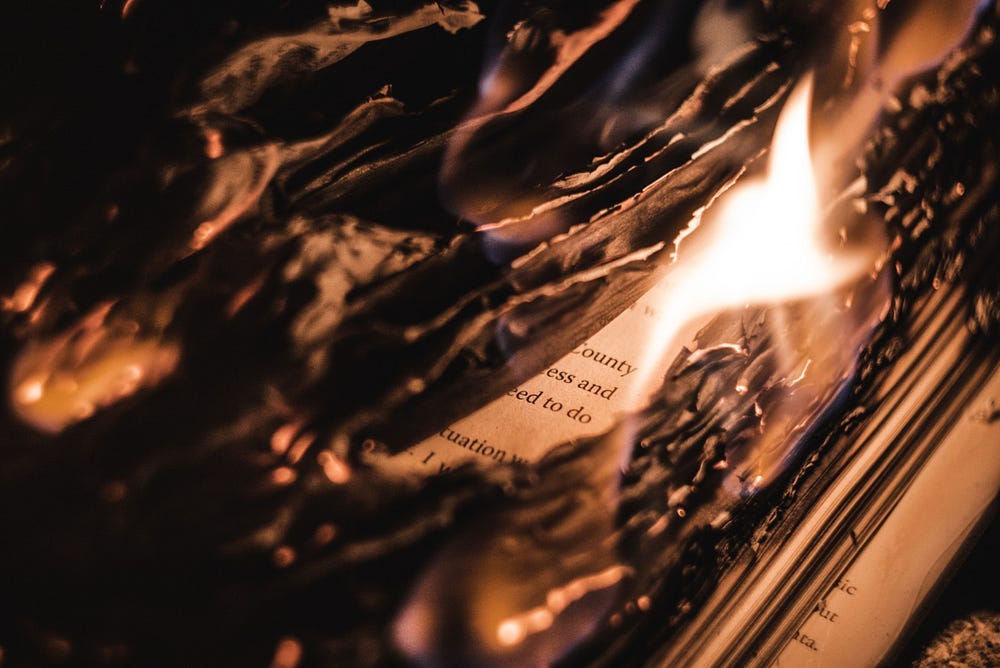Short Story: Trigger Warning Part 1 of 4
An author whose novels offend some readers to death has a crisis of conscience

Part One
When Connie Pierce started her usual accusations that my novels killed people, I didn’t think anything of it. I’d been on debate programmes before, discussing this peculiar phenomenon of readers having fatal heart attacks due to reading supposedly offensive material. I wasn’t the only novelist to be reviled for this, but the nature of my stories had earned me the reputation of a provocateur. After all, I had the temerity to write modern fairy tales with darker truths many considered unacceptable.
Many others adored my writing, so I reasoned you had to take the rough with the smooth.
With a deep sigh intended to convey my weary disdain at having to answer this question yet again, I launched into the standard defence of my literary endeavours.
‘All my novels and short stories feature extensive trigger warnings, which constitute a legal disclaimer. When these deaths began to be linked to reading fiction, the government initially considered a blanket ban on the kinds of stories I write. Of course, that rightly provoked outrage. This was censorship. Why should we prevent people from reading things someone considers bad for them?’
‘Because it was killing them,’ said Connie, the blood rising to her cheeks. Flecks of spittle formed in the corners of her mouth, the way it always did when she got angry. She glared at me with sanctimonious, professionally offended hatred from behind her horn-rimmed glasses. With her full-length black dress, stick-up-the-backside posture, and dark hair neatly tied in a bun, she was the embodiment of austere disapproval. Positively puritanical.
‘Which is why trigger warnings are now a legal requirement,’ I responded. ‘They were commonplace in any case, as you know. My publisher always insisted on them for my books. Sometimes they run for several pages. Anyone reading my novels knows what they’re getting into.’
‘So as an author, you take no responsibility for their deaths? Deaths that as well you know, have now been medically linked to reading stories such as yours?’
I rolled my eyes. ‘Yes, I know there is some kind of underlying chemical condition in these readers that caused them to be vulnerable to shocking fiction, as improbable as that sounded when it was first announced. But those with this condition ought not to be so reckless. They are responsible for managing their triggers, not me. It is not the novelists, playwrights, and screenwriters that deserve to be blamed for these deaths. We are simply doing our duty, as chroniclers of the human condition. We are artists, not killers, and sometimes being faced with an unpalatable insight into what we are like can be unpleasant. But I believe it is necessary. The alternative of bland, inoffensive tales that have nothing challenging or incisive to say is unthinkable. I believe the majority of people in this country would agree.’
‘Let’s put that to our audience,’ said Paula Winston, the smartly dressed presenter chairing this debate on her weekly TV series Raw Nerve. ‘A show of hands. Who here agrees with Matthew Burns? Who believes it is the responsibility of readers to manage their own trigger warnings, and that if reading something kills them, it is their own fault?’



